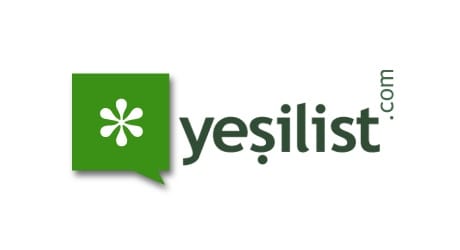 |
| Yesilist, the platform for sustainable living and consumption in Turkey |
As the
first stage of my Green Sense Tour, I worked for one month as a consultant at Yesilist. Yesilist is the green platform in Turkey. It
provides information on sustainable living and consumption. As a matter of
fact, living in a sustainable way in Istanbul, for instance, is challenging. On
the one hand, Yesilist tries to answer these questions by providing a guide
listing companies who offer sustainable products and services. On the other
hand, Yesilist has a dynamic blog providing topical information on different
aspects of sustainability. Yesilist exists since 2010 and the amount of
followers has been growing steadily.
Ergem, the
CEO, asked me to help out with the following questions:
- How can the business model of Yesilist be sustainable in the long run?
- Being an outsider, what inefficiencies do you see at Yesilist?
- How to involve the followers of Yesilist into an active community where they are enabled to contribute to Yesilist?
To analyze
the business model, I conducted a SWOT and PEST(EL) analysis. Furthermore, I
conducted a benchmark of Yesilist’s business model to business models of similar
successful companies and organizations. In addition, we conducted a survey with
the followers of Yesilist and I conducted an interview with each of the
employees of Yesilist. To reveal inefficiencies, I confronted my theoretical
knowledge and experience at other organizations with the practices at Yesilist.
To empower and involve the entire team of Yesilist I conducted a workshop with
them to discuss about Yesilist’s strategy, business model and potential
solutions to inefficiencies. I used this workshop as the basis for an extensive
report with suggestions.
To involve
Yesilist’s followers more closely, I organized a MakeSense Hold-up together
with Ayse Nur. The hold-up gave some interesting ideas and made the
participants enthusiast about Yesilist and MakeSense. Unfortunately it failed
to give a concrete implementable outcome.
I added two
more things to my TODO-list. Firstly, I wanted to learn from the expertise on
marketing that Yesilist holds. For that reason, I drafted a marketing campaign
on organic food. As the earlier conducted survey had suggested, I took yuppies
as the target group. Thus, I designed a marketing campaign based on the tagline
‘experience organic food’ featuring cooking- and tasting workshops and a visit
to the organic market in Sisli.
Lastly, I
wanted to finish what I started two years ago. In the spring of 2012 I brought
a group of people together around different fields of sustainability in
Istanbul. The main outcome was a second-hand shopping guide for Istanbul.
Because of technical issues, the guide hadn’t got published yet, so I wanted to
take the opportunity to do it. With the help of 10 wonderful volunteers, this
time, we put the guide online on Yesilist in both English and Turkish. Let’s
shop second hand!
Lessons
learned
- An outsider coming for a short period to a company, may see inefficiencies and solutions to them that team members don’t see.
- When giving suggestions for improvements it is important to give concrete guidelines on how to implement these changes. Don’t spray confetti and then leave.
- Involve the entire team of a company when talking about strategy and business model. Everybody should be able to contribute and discuss, so that everyone is on the same line.
- In a period of one month, I could do a lot of work, but I could have realized even more if I had focused on one topic, rather than working on different projects in the same time.
| Goodbye drink at Yesilist with my wonderful colleagues |

No comments:
Post a Comment